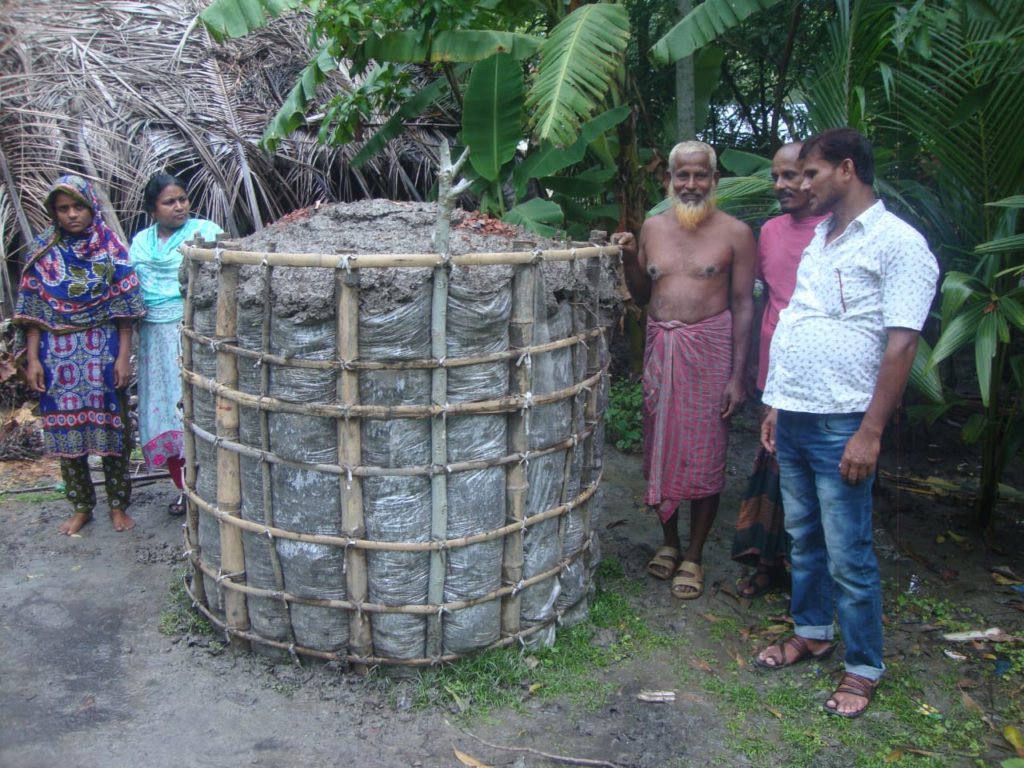Type of Change: New/further knowledge gained
Boundary Level: Community
Summary/Theme: Developing a climate-adaptive solution called ‘Food tower’ to grow vegetables in rural areas from Bangladesh which have saline water.
Mr. Salah Uddin Titol works at a local NGO called SPACE (Society for People’s Action in Change & Equity) in Bangladesh. He participated in Cap-Net Bangladesh’s ‘Training of Trainers (ToT) on Climate Change, Water and Health’. At the time, Salah was conducting a project with SPACE for maternal health improvement and stunting growth prevention among children in remote areas Bangladesh’s coastal zones. According to Salah, the knowledge acquired from the ToT provided him with “a better understanding about how climate change can affect food availability and ultimately people’s health”, a concept which he incorporated into training programs to local communities. “Working with other professionals during the ToT taught me about specific vulnerabilities of Bangladesh’s different coastal zones”.
Salah met a community member who relied on a small income to survive each month right after he took the training, Latifa Begum. Their small homestead land could not grow food due to the increasing salinity of the water available. This forced them to consume a diet based on burned chilli and coconut mix, in turn causing illness and malnutrition. Salah invited them to a training session on climate-resilient technologies focused on cultivating vegetables through food towers, innovative vertical structures filled with soil that allows growing vegetables in places with scarce land and high-water salinity.
Subsequently, Latifa and her husband built their own food tower which has allowed them to meet their family’s nutrition needs and even sell some of the vegetables in the local market, increasing their family income. Salah underlined that Latifa is now cultivating saline resilient vegetables in all seasons while other community members have also started to follow her.
